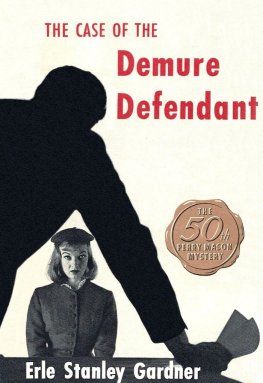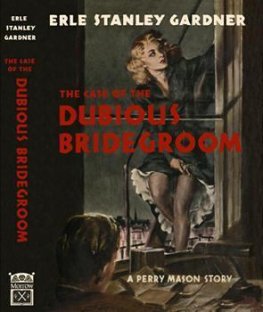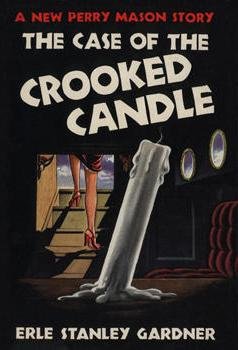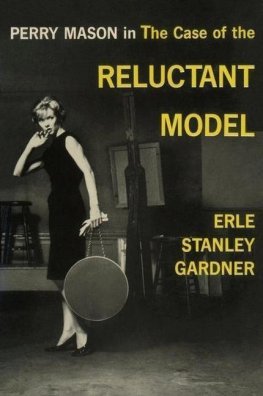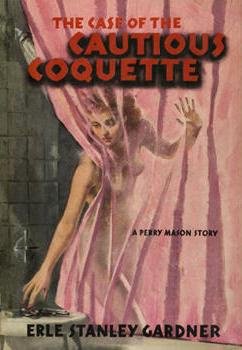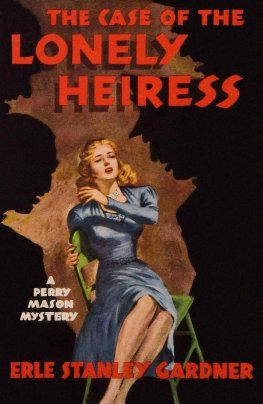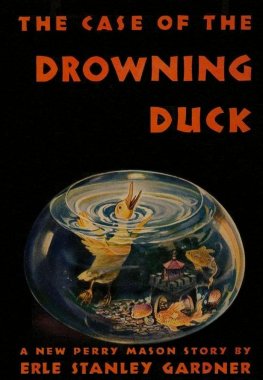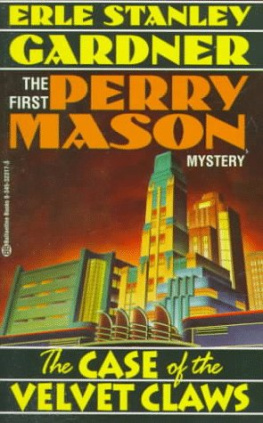Erl Gardner - The Case of the Negligent Nymph
Here you can read online Erl Gardner - The Case of the Negligent Nymph full text of the book (entire story) in english for free. Download pdf and epub, get meaning, cover and reviews about this ebook. year: 1958, publisher: Pan, genre: Detective and thriller. Description of the work, (preface) as well as reviews are available. Best literature library LitArk.com created for fans of good reading and offers a wide selection of genres:
Romance novel
Science fiction
Adventure
Detective
Science
History
Home and family
Prose
Art
Politics
Computer
Non-fiction
Religion
Business
Children
Humor
Choose a favorite category and find really read worthwhile books. Enjoy immersion in the world of imagination, feel the emotions of the characters or learn something new for yourself, make an fascinating discovery.
- Book:The Case of the Negligent Nymph
- Author:
- Publisher:Pan
- Genre:
- Year:1958
- Rating:3 / 5
- Favourites:Add to favourites
- Your mark:
- 60
- 1
- 2
- 3
- 4
- 5
The Case of the Negligent Nymph: summary, description and annotation
We offer to read an annotation, description, summary or preface (depends on what the author of the book "The Case of the Negligent Nymph" wrote himself). If you haven't found the necessary information about the book — write in the comments, we will try to find it.
The Case of the Negligent Nymph — read online for free the complete book (whole text) full work
Below is the text of the book, divided by pages. System saving the place of the last page read, allows you to conveniently read the book "The Case of the Negligent Nymph" online for free, without having to search again every time where you left off. Put a bookmark, and you can go to the page where you finished reading at any time.
Font size:
Interval:
Bookmark:
The Case of the Negligent Nymph
By
Erle Stanley Gardner
Chapter 1
FROM ins RENTED CANOE PERRY MASON SIZED UP THE ALDER estate as a general sizes up a prospective battlefield.
The moon, a few days past the full, made a shimmering path of silver in the east, and served to illuminate Masons objective, an island connected with the mainland by a fifty-foot steel-and-concrete bridge.
On that island George S. Alders huge two-storied mansion faced the narrow channel, as a castle might look down upon its protecting moat.
Fencing off the estate from the curious eyes of passers-by on the mainland was a brick wall topped with wrought iron and studded with broken glass. On the bay side were signs warning trespassers they would be prosecuted. A long wharf ran out into the sluggish waters, a sandspit on the northern side gave a crescent-shaped bathing beach and, back of that, a well-kept lawn became a velvety green carpet, thanks to the aid of loam which had been trucked in at great expense.
Alders legal position seemed, at least on the surface, to be fully as impregnable as the island estate which isolated him and his wealth from the mainland. But Perry Mason was by no means an ordinary lawyer. It was never his policy to attack where the enemy expected the blow to fall. Rather, he preferred to devise some ingenious objective all his own. Hence his nocturnal survey of the place which meant more to Alder than all of the far-flung empire which he controlled.
On this particular evening Alder was entertaining, and, for the most part, his guests had evidently come from the two large, seagoing yachts which were riding their moorings a quarter of a mile offshore. Two power launches, rich with polished mahogany, gleaming with burnished brass, were tied up at the private wharf of the Alder estate. And rumor had it that beams of invisible light guarded this wharf so that the moment any craft approached within ten feet an alarm sounded automatically, floodlights blazed into brilliance, and a powerful siren sent out its piercing scream.
Mason silently paddled hiscanoe close to the sandspit, studying the contours.
A hooded electric light was fastened to a board sign in such a manner that it illuminated the legend painted in red letters. These letters could be read a hundred and fifty feet away PRIVATE PROPERTY, NO TRESPASSINGBEWARE OF VICIOUS DOGS WHO WILL ATTACK TRESPASSERS ON SIGHT, KEEP OFF!
It was at this point in his survey that Mason suddenly became conscious of the swimmer.
Apparently the figure had not as yet seen the canoe, but was drifting along down the tide with slow, evenly timed, powerful strokes.
Mason, suddenly curious, held his canoe steady against the slowly ebbing tide and watched.
The figure landed on the sandspit within a few feet of the illuminated sign. Moonlight and the illumination from the sign were sufficient to show that the swimmer was a woman. She had apparently been swimming in the nude with a small waterproof sack tied to her back. From this sack she removed a bath towel with which she dried her slender, athletic body. Then she produced stockings, shoes, and a low-cut evening gown.
Fascinated, Mason shipped his dripping paddle into the rented canoe, took night glasses from their case and raised the binoculars to his eyes.
He could see that she was blondish, good-looking and apparently completely assured.
She was not hurrying, nor was she loitering. She was as calmly unrushed as though she had been dressing at home in front of a mirror, and, once she had adjusted the sleeveless, strapless gown, she made up her face by the aid of a compact, using the light from the warning sign to guide her.
Having completed the make-up to her satisfaction, she left the waterproof bag on the ground, draped the wet bath towel over the support which held the light above the warning sign, and started walking toward the house, following a flagstone path which wound its way across the green of the lawn.
From the house came an occasional sound of isolated shrill womens laughter, the patter of voices, an occasional burst of general merriment.
Quite evidently the guests of George S. Alder were enjoying themselves, and it seemed equally evident that they had no reason to anticipate that an attractive guest who had arrived at the island by such surreptitious means was about to join them.
Fascinated, Mason watched through his binoculars, noticing the young womans smooth-hipped walk, her easy assurance as, with the long skirt of her gown draped over her arm, she calmly followed the flagstoned path until she was at length swallowed in the shadow of the house.
The lawyer sat in his canoe, binoculars ready, waiting. There was no slightest indication from the house that any untoward events were in the making.
For some fifteen minutes Mason sat watching and waiting, studying the house with his binoculars, from time to time tlirusting the paddle into the water to hold the canoe against the tide while he awaited developments.
There was, of course, the possibility that this latest arrival was either an invited guest or someone who was sufficiently acquainted with the household to be certain of her welcome, but in either event she would hardly have left the waterproof bag and the towel there by the illuminated sign.
Mason glanced impatiently at the luminous dial of his wrist watch. It was getting late, and he wanted to return the canoe and get back to town. He had surveyed the accretion line of the sandspit enough to form a definite plan of action. Within the next few days George S. Alder would be given a jolt which would cause him considerable inconvenience. Yet, at the moment, the lawyer dared not leave. He could not overlook the potential possibilities inherent in this surreptitious visitor who had appeared swimming out of the darkness with the deft stroke of one who is as much at home in the water as on land. Certainly there was something
Suddenly Mason heard the barking of a dog. It was the excited, hysterical barking of an animal lunging against his chain.
Abruptly, lights flashed on in some of the back rooms of the Alder mansion. Mason heard shouting, the renewed barking of the dog.
Balancing himself in the canoe, the lawyer studied the house through his binoculars.
The figure of the young woman appeared at one of the windows. She slid over the sill and lowered herself. The long skirt momentarily caught on the window sill, then she let go with her hands and, with a flutter of billowing skirts, dropped to the ground and started running.
First she ran toward one of the gates in the wall, then as the sound of shouting intensified in the house behind her, she veered back toward the water.
Through his binoculars, Mason could see men and women milling around in the room she had left so abruptly. Then he saw a mans form framed against the window, heard him shout.
The words were unintelligible, but there could be no mistaldng the tone of the mans voice. It was a shout of discovery, and the tone was that which conveys understanding even to inarticulate, wild animals deeply hidden in brush, which at the sound of that note of triumphant discovery in the voice of the hunter automatically leaped into startled flight.
The girl was running in a sheer panic now, coming straight toward the water, heedless of the towel and the white waterproof bag which she had left when she came ashore.
For a moment the man stood in the window, shouting, then he abruptly vanished.
The barking of the dog reached a shrill crescendo, then suddenly stopped.
Mason glanced from the running woman, who was sprinting directly toward his canoe, back to the window.
Suddenly he realized why the dog had stopped barking. The man had unchained him.
A dark streak of motion came hurtling through the window. For a moment, Masons binoculars clearly showed the form of a Doberman pinscher as he sailed out in a great leap. Then the animal struck the ground and wasted a few precious seconds picking up the trail of the fugitive, following scent and running toward the gate.
Font size:
Interval:
Bookmark:
Similar books «The Case of the Negligent Nymph»
Look at similar books to The Case of the Negligent Nymph. We have selected literature similar in name and meaning in the hope of providing readers with more options to find new, interesting, not yet read works.
Discussion, reviews of the book The Case of the Negligent Nymph and just readers' own opinions. Leave your comments, write what you think about the work, its meaning or the main characters. Specify what exactly you liked and what you didn't like, and why you think so.

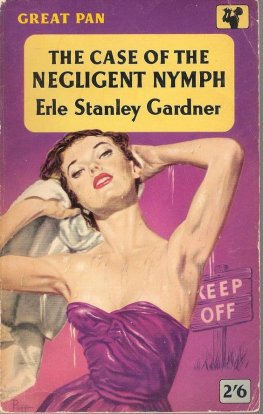
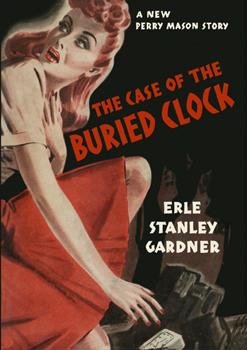
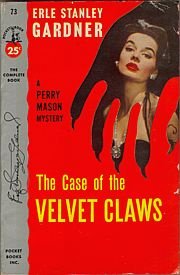
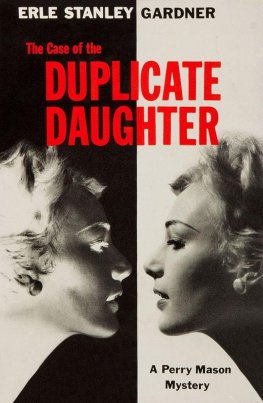
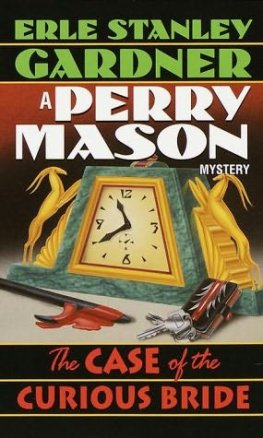
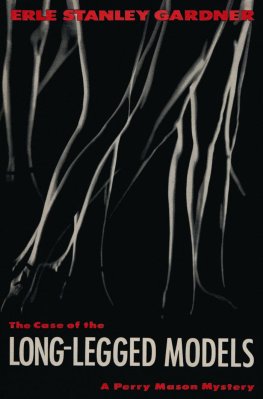
![Erl Gardner - The Case of the Deadly Toy [= The Case of the Greedy Grandpa]](/uploads/posts/book/924181/thumbs/erl-gardner-the-case-of-the-deadly-toy-the.jpg)
